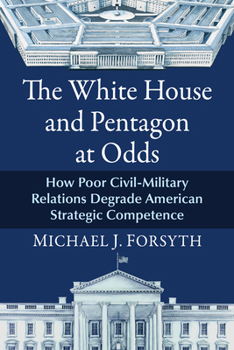The White House and Pentagon at Odds: How Poor Civil-Military Relations Degrade American Strategic Competence
The ability of leaders to develop sound national security policy and strategy has suffered immensely since the Vietnam War. A primary reason for this downward trend is that civil-military relations have been generally poor since that time. This book theorizes that the quality of national security policy and strategy is directly proportional to the tenor of US civil-military relations. This theory, called the civil-military relations strategy corollary, asserts that when relations between the main actors are poor, the expected strategic outcomes are correspondingly of low quality. Conversely, when relations are of higher quality characterized by close cooperation, broad dialogue, and mutual respect--even during disagreements--the probability of positive strategic outcomes is greatly improved. Thus, it stands to reason that civilian and military senior leaders should work toward maintaining sound civil-military relations in order to achieve the best strategic outcomes for national security. This book uses historical case studies to demonstrate the theory in action and to distill the contributing factors that have caused civil-military relations to become strained over time. Finally, it provides recommendations to reverse the trend of declining civil-military relations in the United States.
Related Subjects
History




